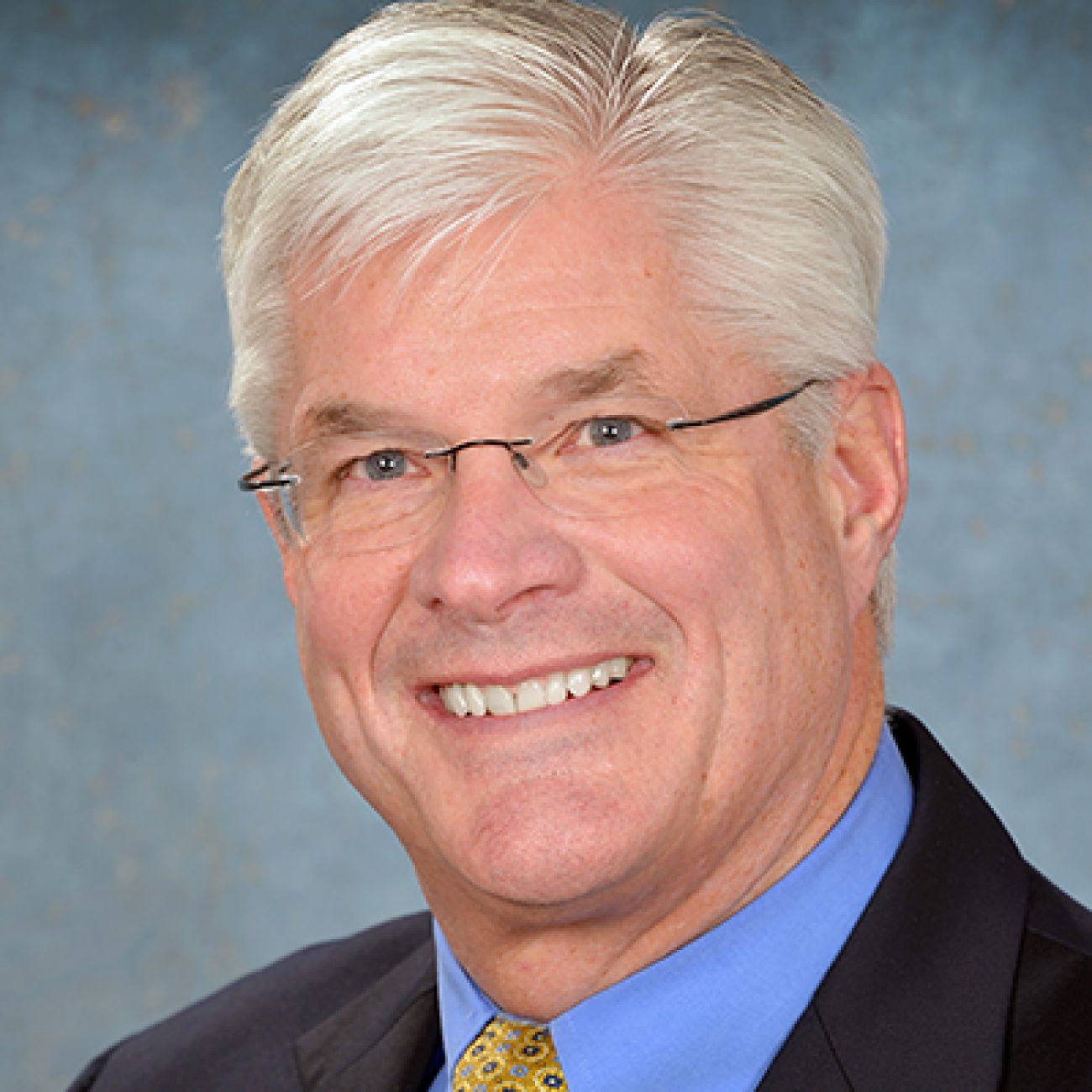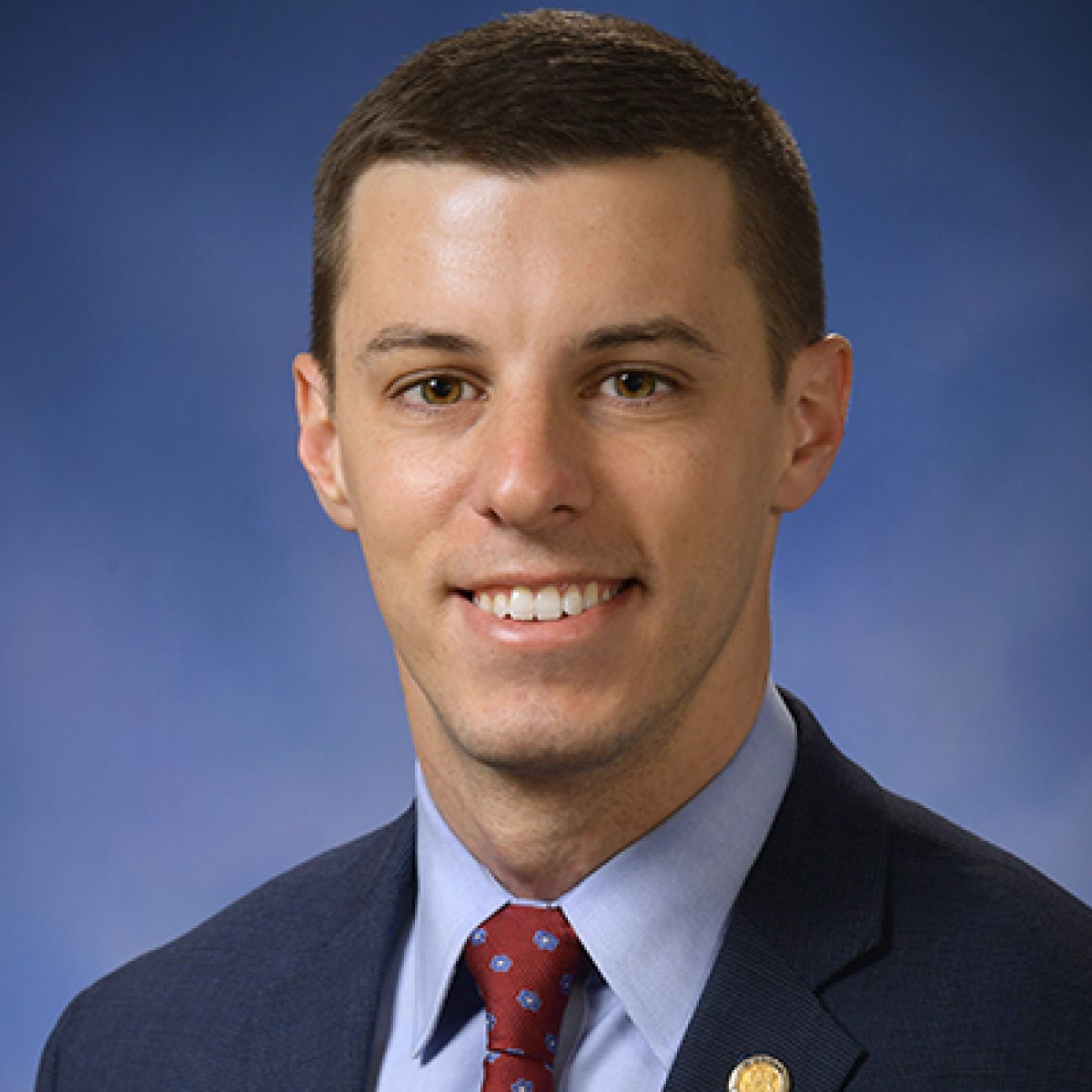Michigan Republicans’ 2019 to do’s: roads and auto insurance

March 5: Six big proposals in Gretchen Whitmer’s first Michigan budget
Michigan’s new Republican legislative leaders say their two biggest policy goals are fixing Michigan’s roads and reforming the state’s expensive no-fault auto insurance system.
The GOP retains control of the Legislature for the next two years, but the party will have smaller majorities in the state House and Senate and no ally in the governor’s office with Democrat Gretchen Whitmer taking charge after eight years of total Republican control in Lansing. That will require Republicans (and Democrats, including Whitmer) to find areas where they can cooperate to achieve significant reforms.
Here’s what new Senate Majority Leader Mike Shirkey and House Speaker Lee Chatfield said are their top policy goals for 2019.
Related 2019 Michigan government priorities:

Mike Shirkey, Senate majority leader
Bio: Shirkey, R-Clarklake, is serving his second and final term in the Michigan Senate after serving two terms in the state House. He represents Jackson, Branch and Hillsdale counties. Shirkey has an engineering background and founded Orbitform LLC, a Jackson-based company that makes assembly machines for manufacturers. He sponsored legislation to create work requirements for Michigan’s Medicaid expansion recipients and to scale back the state’s new citizen-initiated paid sick leave law. He also supports right-to-work laws adopted in 2012 that prohibit unions from requiring dues as a condition of employment.
Top priorities: Fixing the roads, reforming Michigan’s no-fault auto insurance system.
On roads: Shirkey said he intends to allow a $1.2 billion funding package adopted in 2015 to fully take effect before he will be interested in considering increasing road revenue. The plan now-former Gov. Rick Snyder signed into law raised half of the $1.2 billion from higher gas taxes and vehicle registration fees, while the other $600 million in diverted income tax revenue is scheduled to phase in by 2020-21.
“We can evaluate options. We can measure how we’re performing with the bill that we passed a couple years ago, but I’m going to be resistant to do too much until that is fully implemented,” Shirkey told Bridge.
“Let’s complete our current plan through 2020,” he added. “That gets us to a $1.2 billion per year for perpetuity — or until the Legislature changes it — in addition to what we’ve always historically spent and evaluate then whether or not it’s enough and where we need to adjust.”
Yet that amount alone is not expected to be enough to fix Michigan’s underinvestment in its road infrastructure. A nonpartisan commission appointed by Snyder, a fellow Republican, in 2016 to study the state’s infrastructure found that the cost to maintain the roads, water systems, broadband internet and energy transmission the state already had was up to $4 billion per year for 20 years. That same commission estimated the roads portion could cost about $2.6 billion more per year than is being spent now.
On auto insurance: Shirkey said he supports doing away with Michigan’s unique-in-the-nation unlimited personal injury coverage offered through auto insurance, and create tiers of coverage that drivers can choose.
Michigan’s auto insurance rates are among the highest — if not the highest — in the nation, and Detroit’s insurance rates far outpace the rest of the state. That’s partly because Michigan is the only state that requires auto policies to cover unlimited, lifetime medical benefits for crash victims.
Reforming auto insurance has been near the top of both parties’ legislative wish list for years to lower drivers’ costs, but meaningful changes have eluded lawmakers for several terms, due in no small part to powerful lobbies for insurance carriers and hospitals that have taken opposing sides on the issue. Lawmakers from both parties have disagreed about whether to cap how much medical providers can charge for services, and whether auto insurers should be allowed to consider non-driving factors, such as credit scores or zip codes, when setting rates.
“Personally, I am fatigued about how long this has lingered without material reforms. There’s nobody that I know of that can argue effectively that we don’t have a problem and we don’t pay a lot more for insurance than we probably should,” Shirkey said.
“Attempts made in the past to reform auto no-fault — this is in general now — have typically been led by somebody that’s either favorable to the insurance side of the equation or favorable to the provider side of the equation. And to be successful, I think we’ve got to do it in a way in which we go right down the middle,” he added. “The solution’s going to make everybody walk away from the table equally dissatisfied, equally unhappy. And I don’t think we’ve hit that sweet spot yet.”
On bipartisanship: “My expectation is that the new governor will welcome a broad array of ideas, and then we can together begin to evaluate and talk about where they create consternations for us and where they look like they create opportunities,” Shirkey said.
“We’re playing the same game. It’s: Do our best to make Michigan better or improve opportunities for Michigan citizens,” he added. “We have the same basic outcome desires, but we have different ways in which to achieve it. So I don’t consider the next governor as my enemy. We’re just adversaries in the same game.”

Lee Chatfield, House speaker
Bio: Chatfield, R-Levering, is serving his third and final term in the state House. He represents Emmet, Chippewa and Mackinac counties and parts of Cheboygan County. Chatfield previously worked as a teacher and coach at Northern Michigan Christian Academy, his alma mater. He is a member of Right to Life of Michigan, the National Rifle Association and the Michigan Farm Bureau. He sponsored legislation to roll back Michigan’s income tax rate, though it failed on the House floor in 2017. He backs making the governor’s office and the Legislature subject to the Michigan Freedom of Information Act. He also supports Michigan’s new work requirements for Medicaid expansion recipients, having sponsored a similar bill to Shirkey’s in the House.
Top priorities: Reforming Michigan’s no-fault auto insurance system, fixing the roads, expanding public records laws to include the Legislature and governor’s office
On auto insurance: Chatfield said he considers the no-fault issue to be “the No. 1 economic hindrance to a booming economy and continued growth in our state.”
He did not elaborate on specific reforms he would pursue to no-fault before House Republicans meet to develop their formal policy plan, but said the Legislature needs to ensure that Michiganders “have the opportunity to select what level of coverage they would like.”
In November 2017, Chatfield voted for House Bill 5013, a compromise negotiated between legislative Republicans and Detroit Mayor Mike Duggan, a Democrat. Duggan has made reforming auto no-fault a priority, arguing that it holds back the city’s economic recovery. The bill would have allowed drivers to choose from three tiers of personal injury coverage ranging from $250,000 to unlimited, but it failed in the House, in part because of concerns that the legislation could financially harm drivers who elected lower coverage tiers if they were injured in a crash.
“This is not a Republican or Democrat issue,” Chatfield said. “This is an issue that every single person in the state of Michigan is facing, whether you’re from northern Michigan, southwest, southeast or the Upper Peninsula. We’re paying too much on our car insurance, and we need to provide better options for the people.”
On roads: Chatfield said Michiganders have already expressed their thoughts on road funding on two separate occasions — first, in 2015, when 80 percent of statewide voters rejected a complex ballot initiative to raise sales and fuel taxes and increase revenue to roads, and again in 2018, when the state’s poor roads became a top campaign issue.
Chatfield notes that Michigan has some of the highest fuel taxes in the nation, but has ranked near the bottom of states for its per-capita spending on roads. Michigan drivers pay federal and state gas taxes, as well as the state’s 6 percent sales tax on fuel sales. Revenue from the sales tax on gasoline, however, is not dedicated to roads, but rather primarily schools and local governments.
“When we talk road funding, too often we focus on the symptoms without identifying the root problem,” Chatfield said. “The symptom is that the roads are not funded enough. What I consider to be the problem is the way in which we fund our roads.
“We’ve talked about bonding in the past. We’ve talked about raising taxes in the past,” he added. “But as long as the people of the state of Michigan are paying three taxes at the pump and only two of those taxes go to roads, we will always have a road-funding problem.”
During her campaign, Whitmer proposed to raise transportation user fees or, should the Legislature choose not to do so, ask statewide voters to approve a bond.
Chatfield said the legislative budget process and negotiations with Whitmer’s administration could yield solutions to increase funding for roads without reducing funding for schools, which are primarily funded by state sales taxes, though he did not offer specifics.
On public records: Chatfield was among the sponsors of legislation this past term to extend the state’s Freedom of Information Act to the Legislature and governor’s office. It passed the House unanimously in March 2017, but died in the Senate. Former Republican Senate Majority Leader Arlan Meekhof, who was term-limited out of the Legislature in December, did not support the bills. This remains one area, at least, where he could find a strong partner in House Democratic Leader Christine Greig, D-Farmington Hills.
Chatfield said he remains supportive of the legislation. Michigan has ranked last in the nation for government transparency, including access to state government records.
“It’s very clear that we’re not serving our people in the best way possible,” Chatfield said, referencing the 2015 ranking from The Center for Public Integrity. “I think we can take many strides to hold government more accountable and ensure that the people we serve have access to what we’re doing on the taxpayer dime.”
On the legislative package, he said: “This isn’t about just holding the Legislature accountable, and this isn’t about just holding the executive office accountable. This is about ensuring all levels of government are accountable. And if transparency is good for a local unit of government with the Freedom of Information Act, it should be good for state government, as well.”
On bipartisanship: Chatfield said he will be willing to reach across the aisle and work with Democrats on policies that aim to improve Michigan’s economy and quality of life.
“I look forward to working with my Senate counterparts, as well as building a relationship with Gov.-elect (Gretchen) Whitmer, because I believe that relationship is a necessary foundation in order to accomplish anything,” he said. “If state government doesn’t operate efficiently, your roads aren’t funded. And if state government doesn’t operate efficiently, your schools aren’t funded. And then, ultimately, that means the people are not served, and that’s unacceptable in my mind.”
See what new members are saying about why they donated to Bridge Michigan:
- “In order for this information to be accurate and unbiased it must be underwritten by its readers, not by special interests.” - Larry S.
- “Not many other media sources report on the topics Bridge does.” - Susan B.
- “Your journalism is outstanding and rare these days.” - Mark S.
If you want to ensure the future of nonpartisan, nonprofit Michigan journalism, please become a member today. You, too, will be asked why you donated and maybe we'll feature your quote next time!




